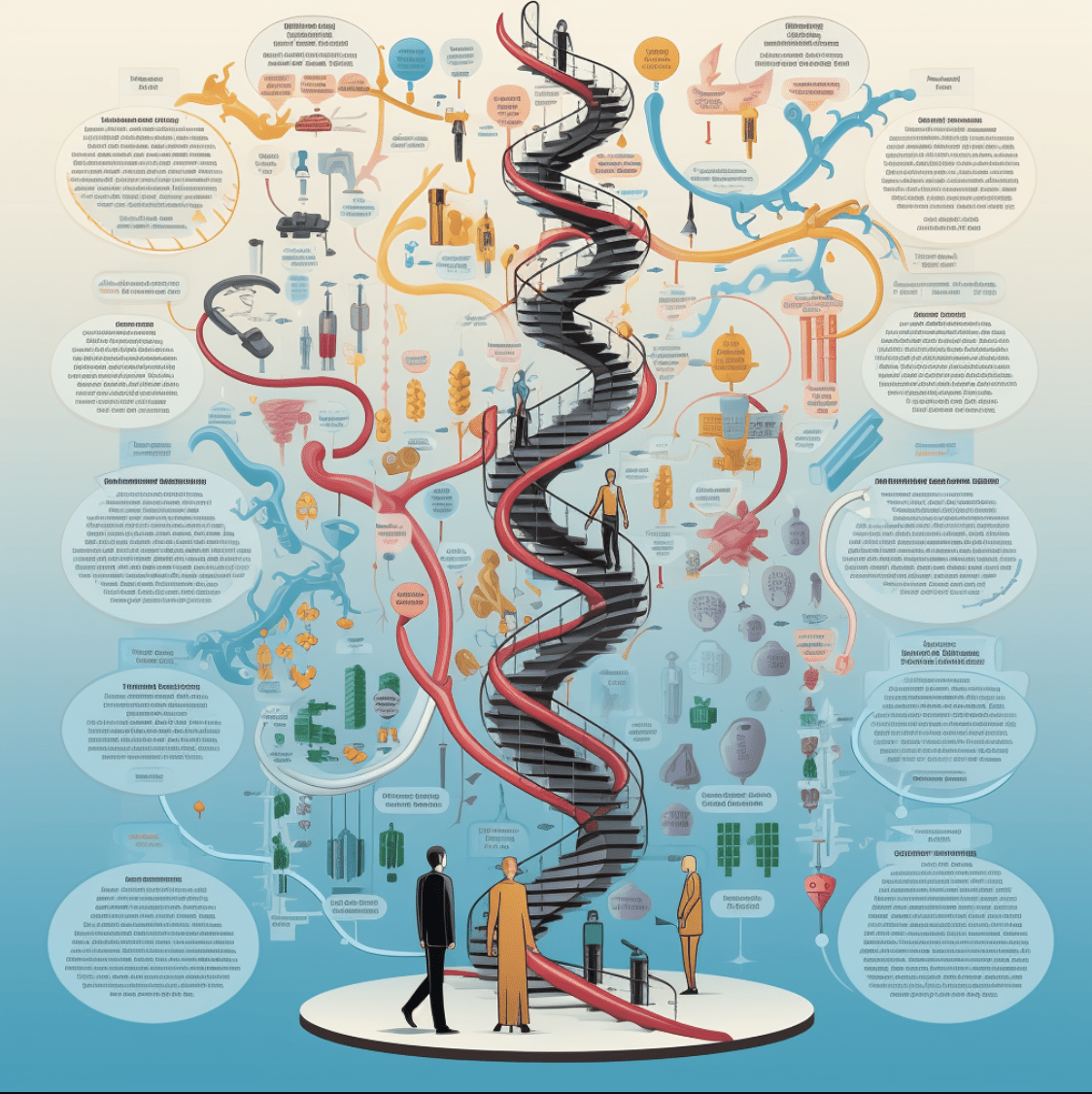Gain a Competitive Edge in Biotech Careers with Strong Soft Skills
Biotech is a rapidly growing field that has revolutionized the way medicine is practiced, food is produced, and even how energy is generated. As the industry continues to expand and become more important, employers are looking for more than just technical skills from their employees. Soft skills, such as communication, teamwork, and adaptability, are becoming more essential than ever.
Mastering these soft skills can be the key to success in a biotech career. In this article, we will explore the importance of soft skills in biotech, the specific skills that are highly valued in the industry, and how to develop these skills to achieve success.
Why are Soft Skills Important in Biotech?
Biotech is a highly collaborative field that involves working with other scientists, engineers, business professionals, and even policymakers. It is essential to have strong communication skills to effectively convey ideas, negotiate contracts, and present findings to a wide range of audiences.
In addition, biotech is a rapidly evolving field that requires workers to be able to adapt to change and embrace innovation. The ability to collaborate, think critically, and solve problems is essential to success in biotech.
Furthermore, biotech companies are often global in scope, requiring employees to work with people from diverse cultural backgrounds. Cultural sensitivity and a willingness to learn about different cultures are critical soft skills for success in the industry.
Valuable Soft Skills to Master
Communication Skills
Effective communication is the foundation of successful collaborations. Scientists must be able to communicate their findings to business professionals, policymakers, and the broader public. Engineers must be able to clearly explain their designs to scientists and business leaders. Business professionals must be able to negotiate contracts and communicate effectively with clients.
Teamwork Skills
Biotech projects involve cross-functional teams that may include scientists, engineers, business professionals, and policymakers. The ability to work collaboratively, contribute to team goals, and build positive relationships with team members is essential to success in the industry.
Adaptability
Biotech is a rapidly evolving field that requires workers to be adaptable and able to pivot quickly to new challenges. Whether it is a new technology or changing regulations, biotech workers must be able to adapt to change and embrace innovation.
Problem-Solving Skills
Biotech projects often involve solving complex problems that require critical thinking and problem-solving skills. The ability to analyze data, identify patterns, and develop creative solutions is crucial to success in the industry.
Cultural Sensitivity
Biotech companies are often global in scope, requiring employees to work with people from diverse cultural backgrounds. Cultural sensitivity and a willingness to learn about different cultures are critical soft skills for success in the industry.
How to Develop Soft Skills for Biotech Careers
Practice Active Listening
Effective communication is not just about speaking clearly; it is also about active listening. This involves demonstrating empathy, asking clarifying questions, and repeating back what you have heard to confirm understanding. Practicing active listening can help build rapport and strengthen relationships with colleagues.
Some highly rated active listening courses along with their links:
- Active Listening – Communication Skills for Success (Udemy):
- Active Listening: A Practical Guide For Business & Personal Success (Skillshare):
- The Science of Well-Being (Coursera):
These courses have been highly rated by many users and cover different aspects of active listening. They aim to enhance your communication skills and help you build stronger relationships through better listening habits.
Collaborate on Team Projects

Working on cross-functional team projects provides an opportunity to hone teamwork skills. Practice building positive relationships with colleagues, being open to feedback, and contributing actively to team goals.
Some highly rated online team collaboration courses along with their links:
- Teamwork Skills: Communicating Effectively in Groups (Coursera):
- Building High-Performing Teams (LinkedIn Learning):
- Collaboration and Emotional Intelligence (LinkedIn Learning):
- The Foundations of Great Teamwork (Udemy):
These courses are designed to help individuals and teams develop effective collaboration skills. They cover topics such as communication, problem-solving, emotional intelligence, and team building. By taking these courses, you can learn how to work more effectively with others and achieve better results as a team.
Attend Networking Events
Networking events are an excellent way to develop communication and cultural sensitivity skills. By attending events and building relationships with people from different backgrounds, you can gain exposure to new perspectives and ideas.
There are many ways to find networking events in your area. Here are some effective methods and websites that can help you find relevant networking events:
- Meetup is a website that helps people find and join groups based on their interests. It’s a great resource for finding networking events in your area. You can search for groups related to your industry, profession, or interests, and see if they have any upcoming events or meetups.
- Eventbrite is an online platform for organizing and promoting events. You can search for events in your area by using keywords like “networking”, “professional development” or “business”. You can also filter results by date, location, and category to find events that fit your needs.
- LinkedIn Events is a tool that helps you discover professional events happening both in-person and virtually. You can use the search bar to find local events, or browse through suggested events based on your profile and interests.
Chamber of Commerce (varies by location): The Chamber of Commerce is a local organization that supports businesses and professionals in a particular region. They often organize networking events and offer resources for professional development. Check with your local Chamber of Commerce to see if they have any networking events coming up.
Professional Associations (varies by industry/profession): Professional associations often organize events, conferences, and workshops to help members connect and learn from each other. If you are part of a professional association, check their website or newsletter for upcoming events.
By using these resources, you can find networking events in your area and start building meaningful connections with other professionals in your field.
Seek Out Mentors
Mentors can provide valuable feedback and support as you develop your soft skills. Look for mentors who have experience in the biotech industry and can offer insights into how to develop successful soft skills.
Here are some resources for finding a mentor in biotech:
- iBiology’s Young Scientist Seminars program provides a platform for early-career scientists to showcase their research and connect with other young scientists. This could be a great opportunity to meet potential mentors in biotech.
- MassBioEd is a non-profit organization that aims to build a diverse talent pipeline for the life sciences industry. They offer mentoring programs for students and young professionals, as well as provide resources and networking opportunities.
- Association for Women in Science (AWIS) is a national organization that advocates for women in science, technology, engineering, and math (STEM). They offer a mentoring program for women in STEM fields, which could be valuable for women seeking mentorship in biotech.
- Biotechnology Innovation Organization (BIO) is a trade association for biotech companies. They offer a variety of resources and programs, including a mentoring program for entrepreneurs and executives.
- LinkedIn is a professional networking site where you can connect with people in your industry and search for potential mentors. You could also join groups related to biotech or STEM fields to expand your network and find relevant mentors.
By using these resources, you can find potential mentors in biotech and start building relationships that could accelerate your career growth.
Pursue Opportunities for Professional Development
There are many opportunities for professional development in the biotech industry, including workshops, conferences, and training programs. Pursuing these opportunities can help you develop new skills and stay up-to-date on industry developments.
Conclusion
Mastering soft skills is critical to success in any industry. Effective communication, teamwork, adaptability, problem-solving, and cultural sensitivity are all essential skills that can help you succeed in this rapidly growing field. By practicing active listening, collaborating on team projects, attending networking events, seeking out mentors, and pursuing opportunities for professional development, you can develop the skills you need to thrive in a biotech career and dominate any interview you have.
